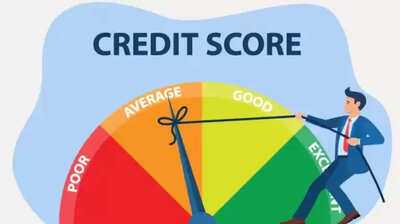Your credit score is a reflection of your financial discipline — a key factor that determines how lenders view your creditworthiness. Many people wonder if it’s possible to improve their credit score within just 30 days. The answer is: yes, small improvements are achievable, but significant and lasting progress takes time, patience, and consistent financial discipline.
Understanding Credit Score ImprovementYour credit score is calculated based on your payment history, credit utilization, length of credit history, and the number of active accounts. Improving it in a short span requires focusing on areas that have the quickest impact. Timely bill payments, lower credit card balances, and avoiding unnecessary credit inquiries can lead to a noticeable difference in your score within a month.
If your financial profile is already stable, even minor changes can make a difference. For example, paying all bills before the due date, reducing your credit card balance before the statement date, and avoiding new loan applications can slightly improve your score in the next update cycle. Checking your credit report for any errors and reporting them to the bank can also yield positive results.
Why 30 Days May Not Bring a “Miracle” ChangeCredit scoring systems rely on long-term data patterns, not just one-time behavior. This means a few weeks of good habits can’t instantly erase past defaults or missed payments. Negative marks on your report—such as late EMIs or settlements—take months to fade. Additionally, credit bureaus update data periodically, so your improvements may take time to reflect.
Expecting a jump of 200–300 points in 30 days is unrealistic. Instead, focus on small, steady progress. Think of credit improvement as building a long-term financial habit rather than achieving an overnight transformation.
Four Practical Steps to Improve Your Credit ScoreAutomate Bill Payments:
Set up automatic payments for all your bills and EMIs to avoid even a single delay.
Keep Credit Utilization Below 30%:
Try to use less than 30% of your total credit limit. Either cut down on expenses or request a limit increase to maintain this ratio.
Avoid New Credit Applications:
Each new inquiry can slightly lower your score. Apply for credit only when necessary.
Regularly Check Your Credit Report:
Review your report every few months and dispute any incorrect information promptly. Correcting such errors can quickly boost your score.
Even after initial improvements, maintaining a healthy credit score requires continuous effort. Late payments or high utilization can undo progress quickly. To build sustainable credit health:
-
Maintain old credit accounts to lengthen your credit history.
-
Avoid unnecessary loans; instead, manage existing credit lines wisely.
-
Re-evaluate your credit report quarterly to monitor trends.
-
Practice financial restraint and plan your repayments strategically.
Improving your credit score in 30 days is possible — but it’s just the first step toward lasting financial stability. A few smart decisions, like paying bills on time, keeping balances low, and fixing report errors, can start the momentum. With consistent financial discipline and regular monitoring, you can achieve a stronger credit profile that opens doors to better financial opportunities — from lower loan interest rates to easier credit approvals.
A strong credit score doesn’t happen overnight, but with patience and the right habits, you can build a financially secure and stress-free future.
You may also like

'Hope of every Christian': Indian-origin MAGA activist supports JD Vance's statement on Usha's religion; 'Unlike Hinduism...'

Health milestone! India sets 3 Guinness World Records; Swasth Nari campaign marks global recognition

Lando Norris double standards pointed out as F1 champion makes Oscar Piastri claim

Meghalaya launches Mission to make Shillong cleanest city in Northeast

Novak Djokovic told Aryna Sabalenka 'let's go on a date' as star opens up on chats







